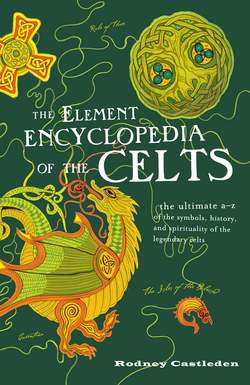Читать книгу The Element Encyclopedia of the Celts - Rodney Castleden - Страница 172
JULIUS CAESAR
ОглавлениеBy no means a Celt himself, Gaius Julius Caesar earns his place here as a destroyer of Celts. He made a greater negative impact on the Celts than anyone else in history.
Caesar came from an old patrician family. In 85 BC, when he was only 16, his father died suddenly. Caesar was young to be head of the family, but he started at once working his way up the cursus honorum, the ladder of offices and appointments that would enhance his social status. In pursuing his political career and lobbying for offices, he ran up debts and was accused of corruption.
When he was appointed Governor of Cisalpine Gaul (northern Italy), with Transalpine Gaul (southern France) added later, he was glad to get out of Rome. He was deeply in debt: a great spur to military adventure.
From a variety of motives, including self-glorification and ultimate political triumph, Caesar worked his way through Gaul, attacking the Gallic tribes one by one and defeating them. Once he had conquered the tribes along the coast of the English Channel, the way was clear to cross and take Britain.
In 55 BC, Caesar blocked an attempt by two Germanic tribes to invade Gaul. Then, in late summer, he crossed the Channel into Britain. But his geographical and political knowledge of Britain was not good enough. He managed to establish a bridgehead on the coast in Sussex, but could not go further. He withdrew to Gaul for the winter.
In 54 BC he returned to Britain with a larger force and achieved more, setting up some alliances that would prove useful later. But there were poor harvests in Gaul, and a widespread revolt there forced Caesar to withdraw from Britain again.
What Caesar did, unintentionally, was to set down a challenge for future emperors who wanted to make a name for themselves. Could they succeed in conquering Britain, where great Caesar himself had failed?
In 52 BC there was a new and larger revolt in Gaul, led by Vercingetorix. This was well-coordinated and Caesar was defeated several times before the revolt was put down at the Battle of Alesia.
Plutarch claimed that in Caesar’s Gallic Wars one million Gauls had died and another million had been enslaved. Caesar had subjugated 300 tribes and destroyed 800 towns. The figures may have been exaggerated, but it is no exaggeration to see this as little short of a Celtic genocide.
